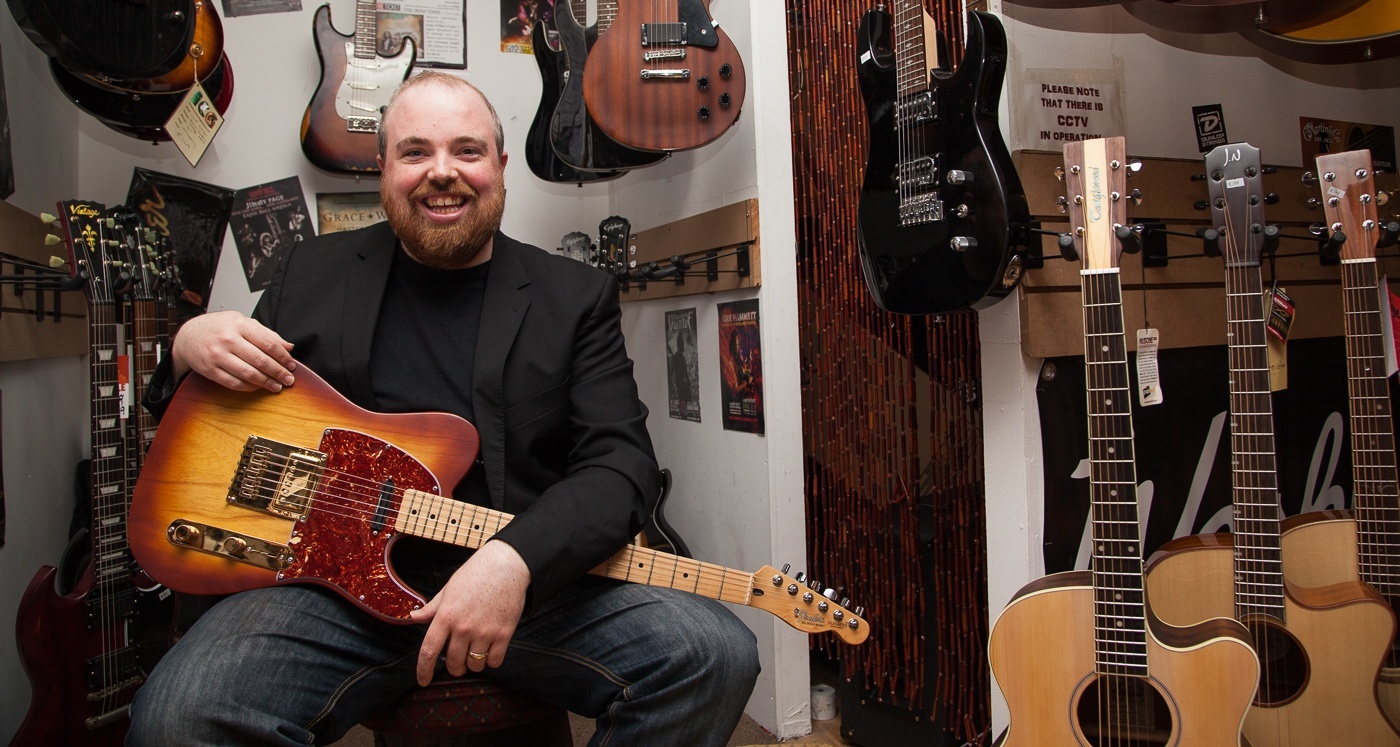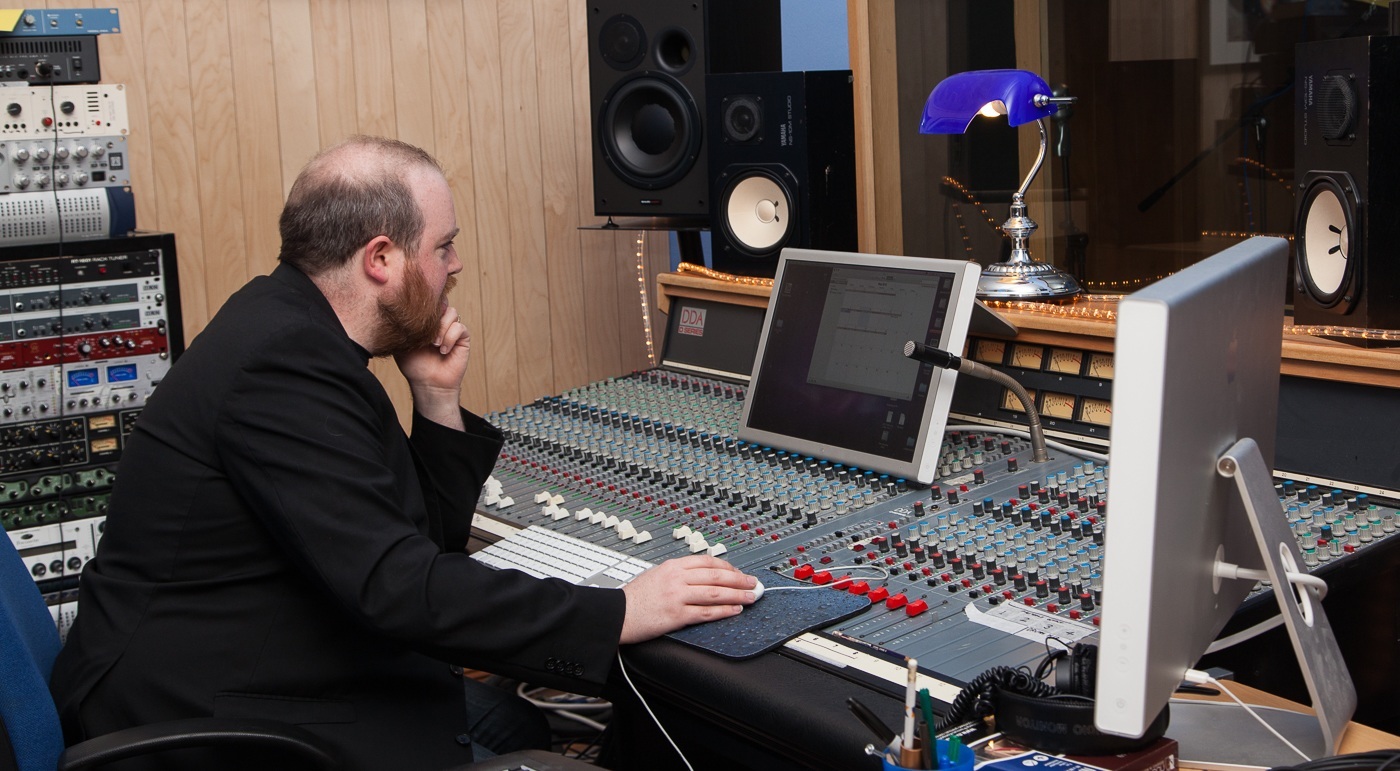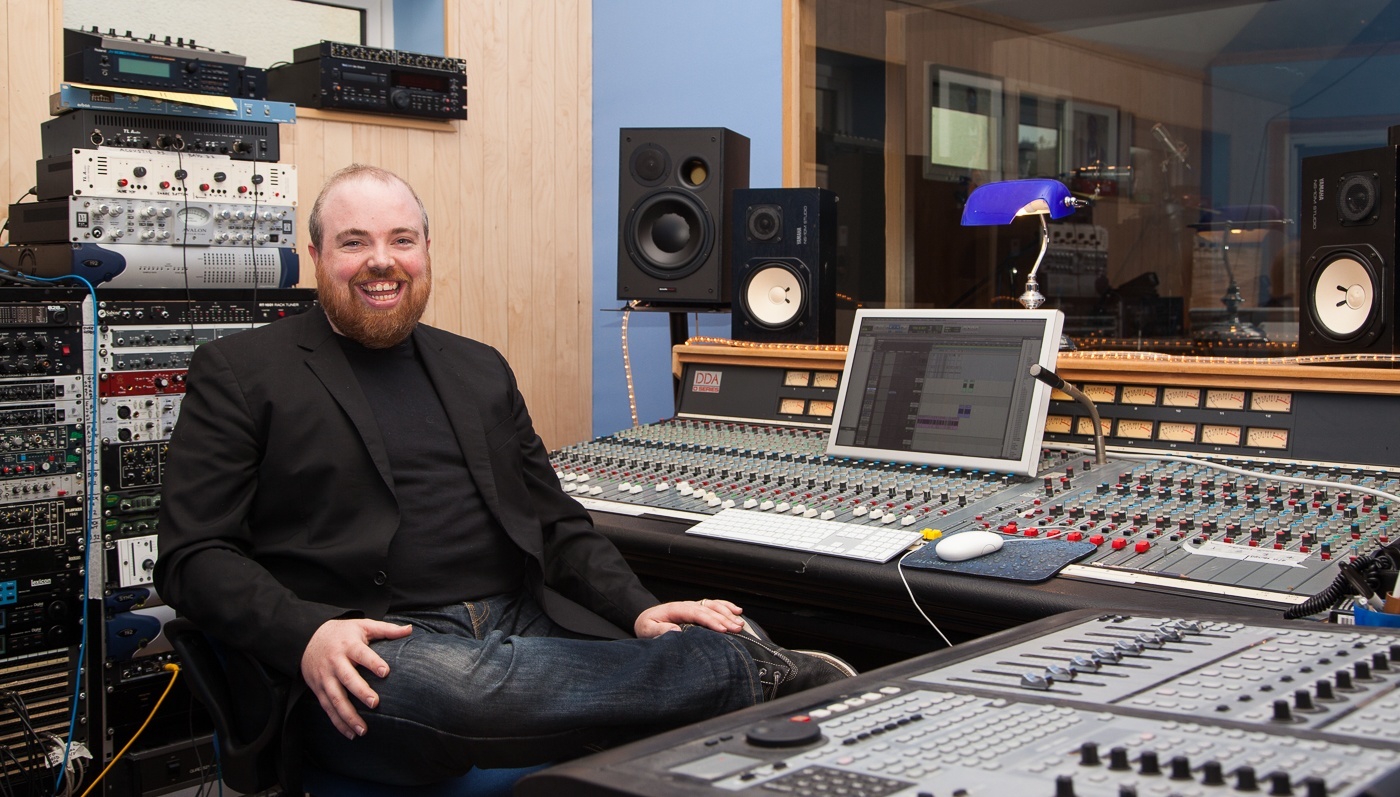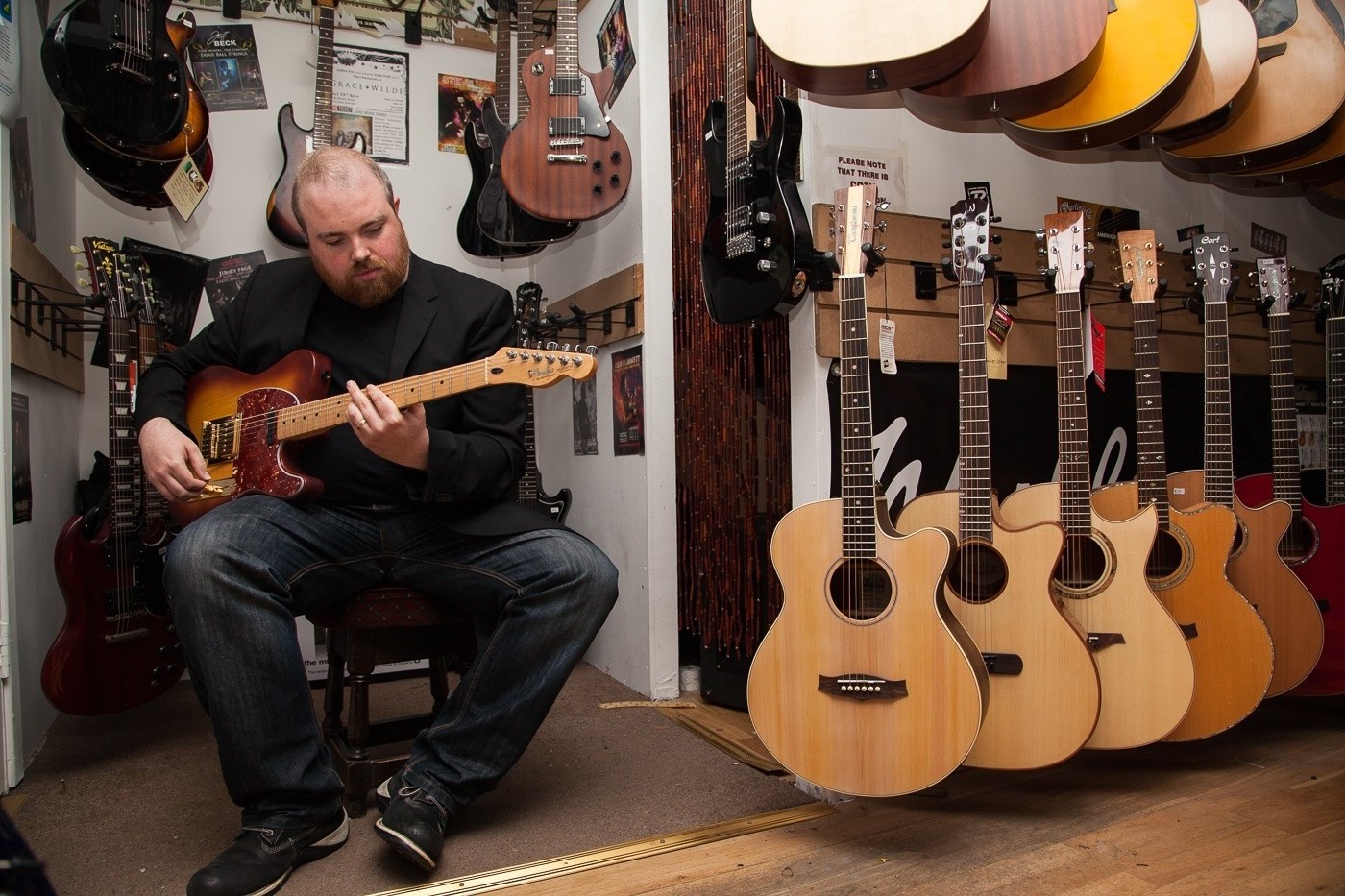You may not know his name but Philip Magee is a talent spotter and hit maker extraordinaire. He has produced number one albums and international hit singles for The Script, Kodaline, and most recently, The Academic’s hit single Different. Tara Thomas discovers how this Northsider went from early school leaver to world-renowned record producer.

Have you always known you wanted to be a music producer?
I played in bands and that was great fun, but I really enjoyed recording. I used to hook up VHS recorders; I’d record rhythm guitar on a dictaphone then play it back through the video player while re-recording on the dictaphone. I was always playing with microphones, cutting them up, rewiring them. When I was in the band I did our recordings. I bought the equipment and the software. I was pretty much dead set then on what I wanted to do.
How did your mother feel about you leaving school?
I quit school after my Junior Cert. I hated school but I loved the teachers. I did the sound for the school talent competitions; I’d fix the intercom system, but I’d bunk off to “Tape to Tape”, a record store around the corner. The principle would find me in the Jazz/ Blues section and ask if I was coming back to school. He was a very fair man and once said I was getting a good education in the record store. It wasn't that I hated education, the first dream was to become a successful guitarist, if that didn’t work out then production was the natural alternative for me. It is good to have a backup plan.
I wasn’t dropping out, The Sound Training Centre offered me a place and even gave me a discount. I’d been teaching music appreciation and song writing to kids there in the summer holidays. They saw I had a good aptitude for recording and suggested I did my training there.
I’d go to the Button Factory and listen to bands, if I thought they were good I’d approach them to record. Fifty quid for twelve hours; this was 2003. I recorded eight or nine EPs in my first year. In my second, I was doing albums. I had great resources to tap into lecturers such as Andy Knightly, Fergal Davis and Phil Hayes.
I was going to college from 10am to 4pm, sleeping in the college from 4pm to 8pm followed by my own recording session from to 10am. It wasn’t easy, I didn’t just walk into a job, I created work for myself.

If you were to advise someone who wants to work in music production, what would you tell them?
It’s an incredibly tough industry with colleges churning out hundreds of students each year. Anyone who is savvy with technology and song writing is doing it at home anyway, so you have to put yourself ahead of the game. You can't wait around for a call, you’re not looking for jobs, you are creating them.
You have to know the realisms of it, there are no jobs; you need to be driven. It’s a service industry, if a client is looking for a service you have to give it to them at a really high standard, you’ll be expected to do that. You need to be on par with your peers if you want to compete.
It’s a very democratic game, which is great. It’s all name led, all about what you’ve done last. You could be in your bedroom with an iPad and Garageband creating a cool song that could go straight to radio. Doing it, that’s your education, you learn stuff along the way. If you know what a good song is, good melody and sonics, you are flying. Education is only one side, people skills and psychology are important. The technical stuff should be second nature, like muscle memory, the rest is your business acumen and personality.

So what route did you take after college?
My Mum spotted Brian McFadden had set up a new studio in the city. There was an X Factor style interview. I gave them a mixtape of work I’d done and they hired me on the spot. My first session was with Sisqo, of Thong Song fame. I did a lot of pop music for them that really developed my editing skills. Around this time I met 21 Demands, now Kodaline. I was judging a talent show - I picked them to win and started recording with them. Kodaline were the best band I’d seen in their age group, they were exceptional; even though they hate those songs now, at the time I was very impressed.
I was also working with Australian singer Delta Goodrem doing a record. I was dealing with the songwriters, in America, who were two Irish fellas. We’d be emailing, texting, chatting on the phone and we completely hit it off. A year later they walked into my studio for a different project and they were like “Hey we’re Danny and Mark” (The Script) and it all just clicked. I started working with them in Mark’s back garden studio. I didn’t know Danny and Mark used to be in boyband Mytown, signed to a huge label in the States supporting the likes of Britney Spears.
You are working in the industry over ten years now - what has changed?
There has been a huge amount of change. I think it’s getting better. I entered at the worst time possible, there were no budgets for records, no one was getting signed. Now I’ve five acts in recording and another five have record company interest. It’s completely changed.
On the other hand recording studios are closing down - technology has gotten so good people are able to record anywhere. It’s bad for the big studios but I think it’s good for music. Bands come to me with a vision of where they want to be and I can incorporate their own recordings and bring them forward. That gives them more control over their creativity. They’ve already created a tone, a colour palette of sounds that they love as opposed to someone dictating to them in a studio, it’s more organic.
Bands have to be clever in how they release their product. Artists can’t just shoot demos out to radio stations, they need to build an audience because radio people don’t know if it’s cool or not. Stations need to be told by their audience, it has to be organic. It’s changed marketing a lot - labels are looking to social media, they are looking at the hype machine, Twitter, YouTube, they can tell if it’s organic. If a band has 40,000 likes on Facebook page but when their posts only gets two likes it shows the followers are bought. Take The Academic for example, their song Different was only released a week when they played The Late Late show, because they had an audience built through social media.

With that in mind how do you feel about legislating for Irish music radio play?
I’m pro-Irish music, I want more played but here’s the big problem - RTE is the only broadcaster that’s funded by the public, the rest are commercial entities. Commercial radio needs to keep the audience listening to that advert. If the listener switches stations the advertiser won’t buy from the station again.
If we legislate by percentage, stations will just bang Irish music onto a 4am slot. A big issue for me is bands are looking for radio play with songs that aren't radio-friendly. I mean if you are trying to get played on SPIN 1038 with a song that’s five and a half minutes long and doesn't have a chorus, it’s not going to happen. Do we like that reality? Maybe not but that’s the truth. Irish radio will get behind Irish music if it’s right for their needs.
Popular and mainstream doesn’t mean weaker, The Beatles are pop, it’s about creating what the masses want. “Pop” is not a dirty word, The Beach Boys, The Everly Brothers, that’s pop. If you’ve a good pop song it will be played on Irish radio. Listen to classic songwriters such as Burt Bacherach they talk about the importance of structure, the chorus, the message, the arc of the song. If a song doesn’t have those elements it’s not a pop song. It might be brilliant, but it’s not a pop song. If you don’t have the formula, it won’t get played.
What are you working on at the moment?
I’ve just finished Heroes in Hiding's new EP, they are a brilliant band with a huge sonic scape of sounds. I also just finished an EP with Calvary, they are exceptional, a mash of instruments, trumpet, cello, electric guitar. Good pop songs with an amazing singer - they are a real radio band.
I’m working with Ivy Nations an indie/ electro/dance crew - I don't know if they call themselves that but I do! I’m doing a lot of work with The Academic at the moment. We recorded Different together, that’s the biggest reaction I’ve seen to a single in a long time. It’s grown organically, there’s no PR behind it, no companies pushing it, it’s all ground traction.
I like to arrange meet ups in rehearsal rooms, I ask bands the stories behind lyrics. Sometimes I’m not right for them and they might not be right for me. If I don’t have a 100% passion for it we can just leave it there, no hard feelings. There’s no point me working with a band I don’t get because then it’s not going to be a good record. Someone approached me recently to do an album, I was like Woah. woah, woah, hold on there, that’s like asking me to marry you. Let’s flirt for a wee bit and see where it goes.
There’s so much work in an album, you go through every lyric, every chord change, every note, every instrumentation to make sure it makes sense. It’s a long procedure, mentally and physically it’s intense. We need to spend a lot of time together in a small space, we best be sure we get along and have the same temperament. It’s like I become a band member for the recording time.
Photos taken on location at The Mill Recording Studios and The Music Outlet, Swords.
